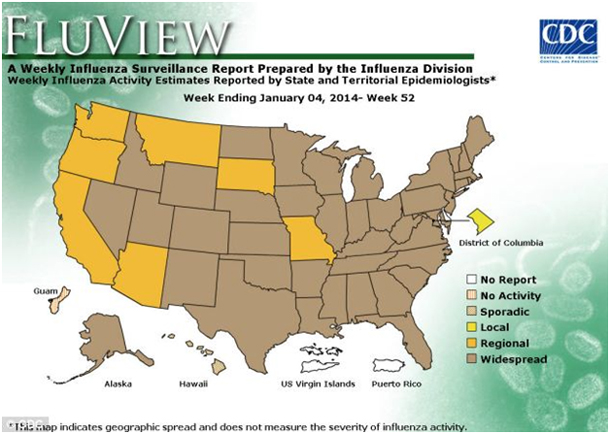The nationwide flu outbreak has taken a dangerous turn, occurring five weeks earlier than usual and spreading at ten times the typical rate. As of January 10th, a public health “state of emergency” was declared in Boston as reports have surfaced that at least 18 people in the area have died recently from a flu outbreak.
The Centers for Disease Control and Prevention has said that this year’s flu season is expected to be one of the worst the country has seen in 10 years, and some doctors are concerned about a nation-wide “flu explosion” in the making.
Across the country, the reports are mounting:
- Oklahoma school districts are closing schools after the deaths of 8 people.
- Pennsylvania has had 22 deaths. Most of the deaths were among people older than 65.
- Indiana has 13 confirmed adult deaths and two pediatric deaths.
- Arkansas has seven confirmed flu fatalities.
- South Carolina has counted 22 deaths.
- Illinois has counted six deaths.
- Michigan has seen four pediatric deaths.
One of the factors contributing to the severity of this year’s flu season is the emergence of an especially virulent flu strain, as well as Influenza B, which is not covered by the standard flu vaccine.
Nationwide, 1 in 3 workers has no paid sick days. In Seattle, where Mayor Mike McGinn recently signed landmark city legislation for paid sick leave, the city and surrounding area are better prepared than most municipalities for a public health emergency. The law, which took effect September 2012, ensures an estimated 150,000 workers in Seattle who previously did not earn paid sick days – including thousands of local grocery stores, restaurants and medical centers – will not be forced to work sick this flu season.
By EOI Intern
More To Read
September 24, 2024
Oregon and Washington: Different Tax Codes and Very Different Ballot Fights about Taxes this November
Structural differences in Oregon and Washington’s tax codes create the backdrop for very different conversations about taxes and fairness this fall
September 10, 2024
Big Corporations Merge. Patients Pay The Bill
An old story with predictable results.
September 6, 2024
Tax Loopholes for Big Tech Are Costing Washington Families
Subsidies for big corporations in our tax code come at a cost for college students and their families

